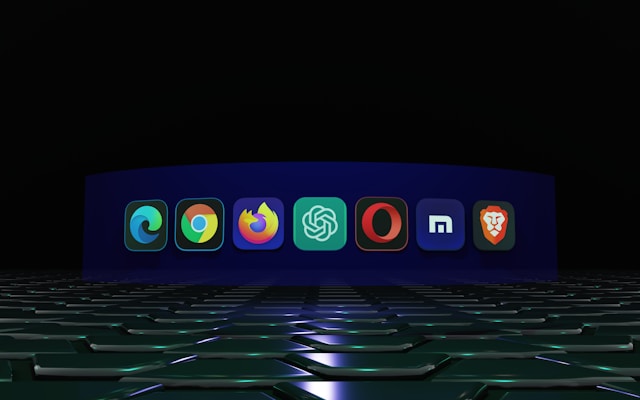
What Is An AI Developer?
Discover what an AI developer does, the skills required, how they contribute to AI-driven projects and learn why AI developers are essential in today’s tech landscape!
Read More

Hiring a top-notch machine learning engineer can absolutely change the game for your business. These professionals bring the expertise needed to develop advanced algorithms, create predictive models, and turn data into actionable insights. As demand for machine learning engineers grows, and in fact it has increased by 74% annually according to a recent LinkedIn report, finding the right candidate becomes increasingly challenging, and a must-do if you’re looking to develop your projects properly.
At DevelopersLATAM, we want to help you understand what you need to do in order to hire the best machine learning engineers for your company. That’s why this article will guide you through the interview process with 25 essential questions to ask potential machine learning engineers. You’ll learn what technical skills to look for, understand key concepts in machine learning, and discover how to evaluate candidates effectively. From core programming and data manipulation to deep learning and NLP, this guide covers all the bases.

Machine learning engineers play a pivotal role in leveraging data to drive business decisions and innovations. They design, implement, and optimize algorithms that can learn from and make predictions based on data. Understanding their responsibilities and required skills is essential for making informed hiring decisions.
A machine learning engineer’s primary task is to develop machine learning models. These models can range from simple regression models to complex deep-learning architectures. The goal is to create systems that can process vast amounts of data, recognize patterns, and generate accurate predictions or decisions. Engineers must also ensure that these models are scalable and efficient, capable of handling real-world data and evolving over time.
Technical proficiency is a cornerstone of a successful machine learning engineer. Mastery of programming languages such as Python and R is crucial. Engineers also need a solid grasp of data structures, algorithms, and statistical methods. Familiarity with machine learning frameworks like TensorFlow, PyTorch, and Scikit-learn is a must.
Staying updated with the latest advancements in the field is another critical aspect. Machine learning is a rapidly evolving domain, with new algorithms, techniques, and tools emerging regularly. Engineers must continuously learn and adapt to stay ahead. According to a report by Gartner, by 2025, AI will be the top driver of infrastructure decisions, emphasizing the need for continuous learning and adaptation.

When hiring a machine learning engineer, identifying the right candidate can be challenging. You need someone with the right mix of technical skills, problem-solving abilities, and industry knowledge. Here are the key attributes to consider:
A solid understanding of mathematics and statistics is another must-have. Machine learning relies heavily on concepts from linear algebra, calculus, and probability theory. Engineers should be comfortable with statistical methods to ensure they can properly analyze data and build accurate models. This foundation is vital for tasks like feature engineering, model selection, and evaluation.
Machine learning engineers must handle large datasets efficiently. Look for candidates with experience in data preprocessing, cleaning, and transformation. They should be adept at using tools like Pandas and NumPy for data manipulation. Additionally, experience with SQL for database management is often beneficial.
The ability to solve complex problems is a critical trait. Engineers should be able to take a business problem and develop a data-driven solution. This involves not only technical know-how but also creativity and critical thinking. Ask candidates to provide examples of past projects where they successfully addressed a challenging problem.
Understanding the industry or domain in which your business operates can significantly impact the effectiveness of machine learning solutions. A candidate with domain knowledge will be better equipped to identify relevant features, understand data nuances, and tailor models to your specific needs. This knowledge can expedite the development process and improve model performance.
Effective communication is vital for machine learning engineers, especially if you’re hiring remote developers to be part of your team in a virtual capacity. They need to explain complex technical concepts to non-technical stakeholders. Clear communication ensures that everyone involved understands the project’s goals, progress, and results. This skill is crucial for collaboration and for securing buy-in from various parts of the organization, and becomes more important when your organization owns a extended development team.
Finally, consider their project management skills. Machine learning projects often involve multiple stages, from data collection to model deployment. An effective machine learning engineer should be able to manage these stages efficiently, ensuring timely delivery and optimal resource utilization. Experience with project management tools and methodologies can be an added advantage.
Choosing the right interview questions is key to finding a skilled machine learning engineer. Here are 25 questions that cover technical, practical, and behavioral aspects to help you identify top talent:
These questions will help you comprehensively evaluate a candidate’s technical abilities, practical experience, and soft skills. Remember to tailor them to your specific needs to find the best fit for your team and ensure you hire machine kearning engineers with the right mix of technical skills, practical experience, and soft skills.
For expert assistance in Nearshore Staff Augmentation and Custom Software Development, our team at Developers LATAM is more than ready to help you. We offer expert staffing services to help you navigate the complexities of outsourcing and facilitate your success in the global market. Our entire team is committed to finding the best Latin American talent and matching them with companies that are ready to outsource their software development needs. Contact us today to schedule a free consultation and learn how we can help you hire machine learning engineers for an affordable price!
